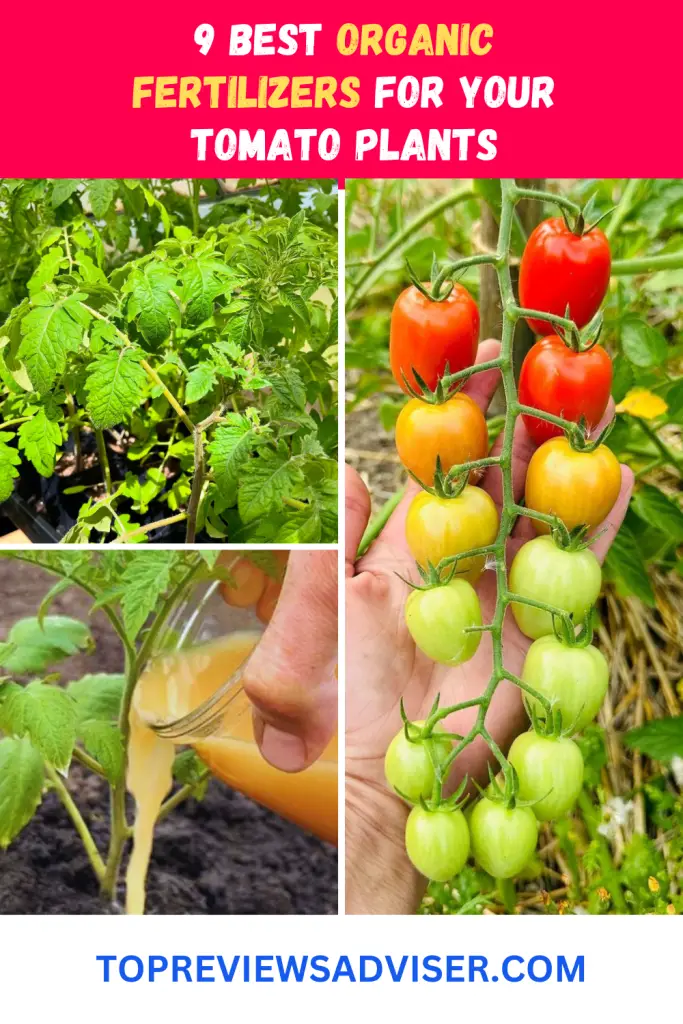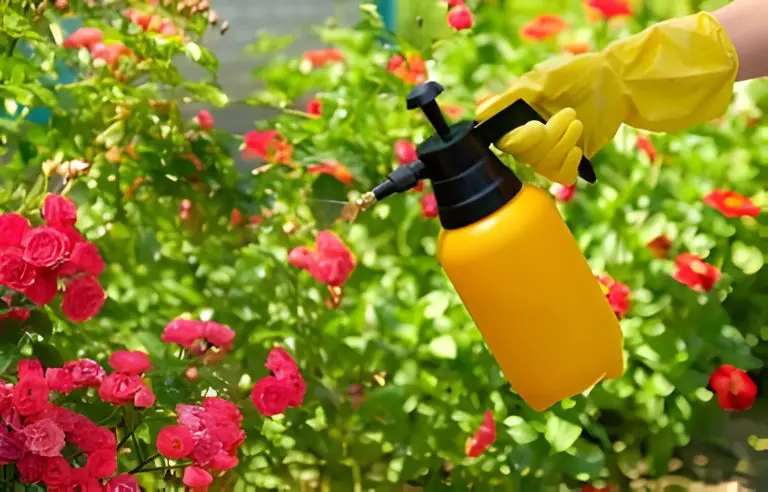9 Best Organic Fertilizers for Your Tomato Plants
Are you looking for the best organic fertilizers to help your tomato plants thrive? Look no further!

In this article, we will explore 9 of the best organic fertilizers that will provide your tomato plants with the nutrients they need to grow strong and healthy.
#1 Rice Water
Rice water is a great organic fertilizer for tomato plants. It is rich in nutrients such as nitrogen, potassium, and phosphorus, which are essential for plant growth. To use rice water as a fertilizer, simply soak some rice in water for a few hours, then use the water to water your tomato plants.
#2 Tea Leaves
Tea leaves are another excellent organic fertilizer for tomato plants. They contain nutrients such as nitrogen, phosphorus, and potassium, as well as antioxidants that can help improve soil health. You can use tea leaves by adding them to your compost or by brewing them into a tea and using the liquid to water your plants.
#3 Bone Meal
Bone meal is a natural source of phosphorus and calcium, which are important nutrients for tomato plants. It can help promote strong root growth and improve fruit production. To use bone meal, simply sprinkle it around the base of your tomato plants and water it in.
#4 Coffee Grounds
Coffee grounds are a fantastic organic fertilizer for tomato plants. They are rich in nitrogen, which can help promote healthy leaf growth. Coffee grounds also improve soil structure and drainage. Simply sprinkle used coffee grounds around the base of your tomato plants to provide them with a nutrient boost.
#5 Hair of Human/Pet
Believe it or not, hair from humans or pets can be used as an organic fertilizer for tomato plants. Hair is rich in nitrogen, which can help promote healthy green growth. Simply sprinkle small amounts of hair around the base of your plants to provide them with an extra nutrient boost.
#6 Banana Peel Tea
Banana peels are a great source of potassium, which is essential for fruit development in tomato plants. To make banana peel tea, simply soak banana peels in water for a few days, then use the liquid to water your tomato plants.
#7 Fish Emulsion Fertilizer
Fish emulsion fertilizer is a fantastic organic fertilizer for tomato plants. It is rich in nitrogen, phosphorus, and potassium, as well as trace minerals that can help promote healthy growth. To use fish emulsion fertilizer, simply dilute it with water according to the package instructions and use it to water your plants.
#8 Compost
Compost is one of the best organic fertilizers for all types of plants, including tomatoes. It is rich in nutrients and beneficial microorganisms that can help improve soil health and promote healthy plant growth. Simply add compost to the soil around your tomato plants to provide them with a nutrient-rich environment.
#9 Wood Ash
Wood ash is a natural source of potassium and other trace minerals that can benefit tomato plants. It can help raise the pH of acidic soils and improve overall soil fertility. Simply sprinkle wood ash around the base of your tomato plants to provide them with a nutrient boost.
How to Use Organic Fertilizers Effectively
Proper Timing: Apply organic fertilizers to tomato plants at the beginning of the growing season and throughout the growing period to ensure continuous nutrient supply.
Application Rates: Follow the recommended application rates provided on the fertilizer label to avoid over-fertilizing, which can lead to nutrient imbalances and plant damage.
Incorporating Into the Soil: Mix organic fertilizers thoroughly into the soil around tomato plants, ensuring even distribution of nutrients and promoting healthy root development.
Benefits of Using Organic Fertilizers for Tomato Plants
Enhanced Soil Fertility: Organic fertilizers improve soil structure, moisture retention, and microbial activity, creating a healthy environment for tomato plant roots to thrive.
Reduced Environmental Impact: Organic fertilizers are derived from renewable natural sources and have minimal negative effects on soil, water, and air quality compared to synthetic fertilizers.
Improved Plant Health and Yield: By providing a steady supply of essential nutrients, organic fertilizers promote vigorous growth, strong root systems, and abundant fruit production in tomato plants.
Common Mistakes to Avoid When Using Organic Fertilizers
Over-Fertilizing: Applying too much fertilizer can lead to nutrient imbalances, burning of plant roots, and environmental pollution. Follow recommended application rates and schedules to prevent over-fertilization.
Improper Application: Ensure proper incorporation of organic fertilizers into the soil and avoid direct contact with plant foliage to prevent leaf burn and nutrient leaching.
Using Low-Quality Products: Choose high-quality organic fertilizers from reputable sources to ensure purity, nutrient content, and effectiveness in promoting plant growth and health.
Tips for Making Your Own Organic Fertilizer
Compost Kitchen Scraps: Turn kitchen waste such as fruit and vegetable scraps, coffee grounds, and eggshells into nutrient-rich compost for use in your tomato garden.
Collect Organic Matter: Gather leaves, grass clippings, and other organic materials from your yard to create homemade compost or mulch to enrich the soil around tomato plants.
Brew Compost Tea: Make compost tea by steeping compost in water to extract beneficial microbes and nutrients, then use it as a foliar spray or soil drench for tomato plants.
FAQs
Can I use organic fertilizers for container-grown tomato plants?
Yes, organic fertilizers can be used for container-grown tomato plants. Choose a slow-release fertilizer specifically formulated for container gardening to ensure optimal nutrient uptake.
How often should I fertilize my tomato plants with organic fertilizers?
Tomato plants should be fertilized with organic fertilizers at least once a month during the growing season. Adjust the frequency based on plant growth and nutrient needs.
Are organic fertilizers safe for pets and children?
Most organic fertilizers are safe for pets and children when used as directed. However, it’s essential to store fertilizers securely and keep them out of reach of curious pets and children.
Can I use organic fertilizers in combination with synthetic fertilizers?
Yes, organic and synthetic fertilizers can be used together to provide a balanced nutrient supply for tomato plants. However, be cautious not to over-fertilize and monitor plant health closely.
How long does it take to see results from using organic fertilizers on tomato plants?
While organic fertilizers promote gradual, long-term soil health and plant growth, you may start to see visible
Conclusion
Organic fertilizers offer a natural and sustainable way to nourish tomato plants, promoting healthy growth, abundant fruit production, and environmental stewardship. By choosing the right organic fertilizers and using them effectively, gardeners can enjoy bountiful harvests of delicious, homegrown tomatoes while minimizing their ecological footprint.






